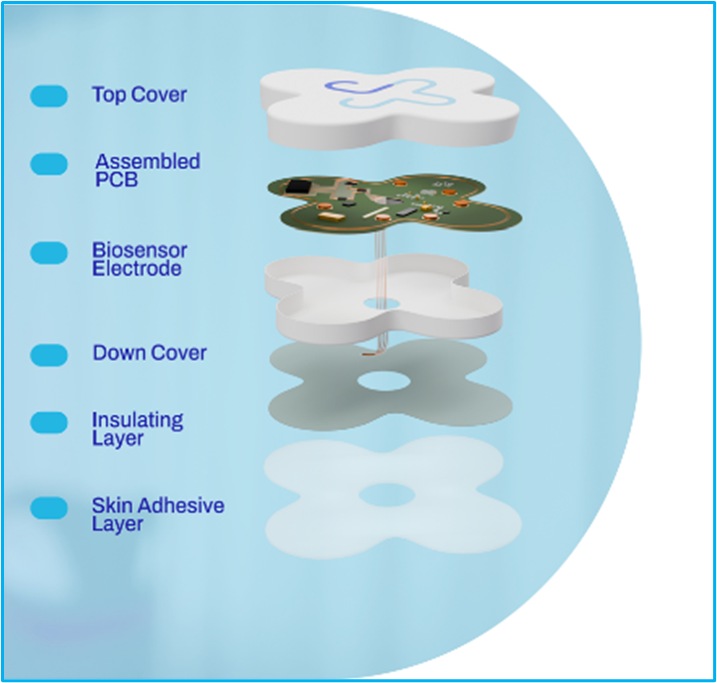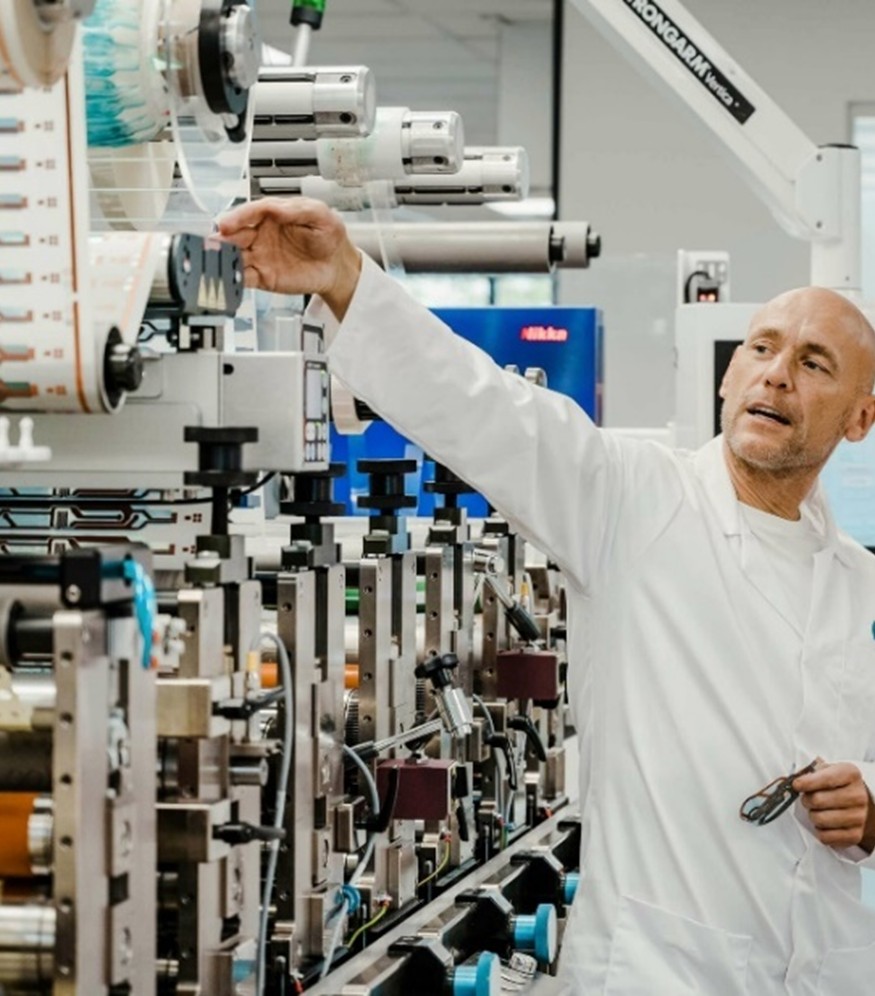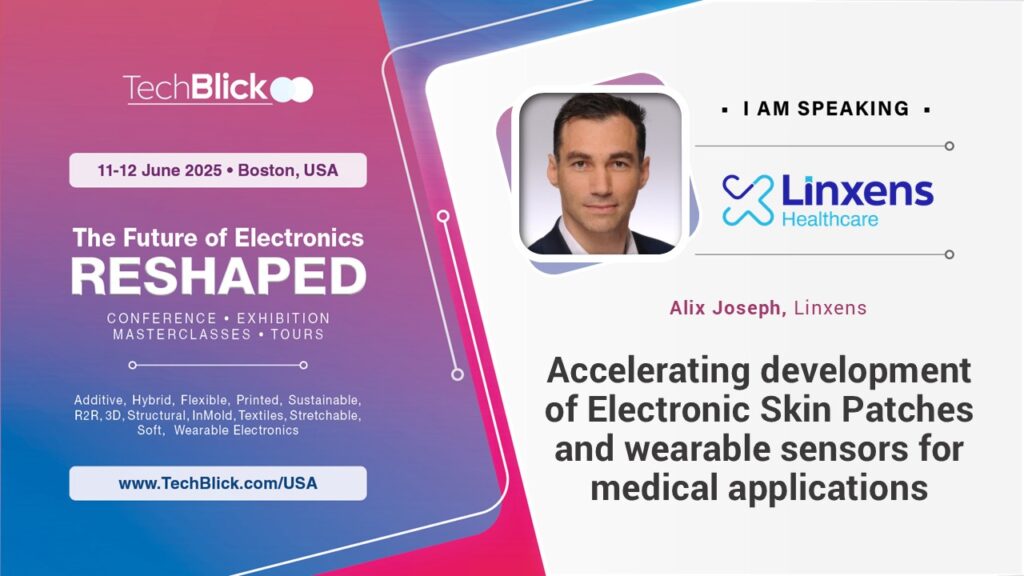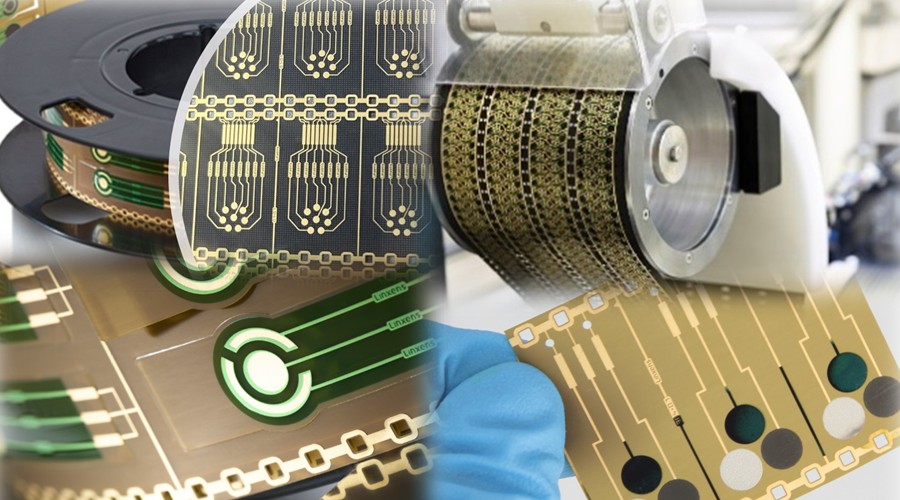Linxens Health experts will be speaking and exhibiting at the TechBlick event: The Future of Electronics Reshaped June 11-12. 2025 in Boston, MA. Linxens submitted this post which explains why the roll-to-roll printing process is poised to transform the creation of flexible printed electronics in healthcare.
By Sabine Kaced
Healthcare Field Marketing Manager
Linxens
The healthcare industry is experiencing a revolution, driven by advancements in wearable devices and biosensors that monitor patients non-invasively and in real time. At the forefront of this transformation is the Roll-to-Roll (R2R) process, a manufacturing breakthrough that is reshaping how flexible printed electronics are created. Linxens Healthcare is leading the way in leveraging R2R technology and contract manufacturing capabilities to deliver cost-effective, scalable and precise solutions for innovative healthcare monitoring.
Harnessing the Power of Roll-to-Roll Technology
At Linxens Healthcare, we harness the power of the R2R process to produce cutting-edge electronic skin patches equipped with electrochemical sensors, integrated electronic components, and skin adhesives. With years of expertise in printed electronics and converting, Linxens Healthcare has established itself as a trusted partner for the development and manufacturing of flexible healthcare solutions.
Inside the Roll-to-Roll Process: Driving Innovation in Healthcare
R2R (roll-to-roll) is a high-throughput manufacturing technique. It involves the continuous processing of flexible substrates such as plastic films, metal foils, or textiles through various stages of printing, coating, and assembly.
At Linxens Healthcare, we utilize advanced printing methods like screen printing, gravure printing, inkjet printing, and flexographic printing, to deposit functional inks onto the substrate with exceptional precision.
Our R2R workflow includes:
- Substrate Handling: Feeding flexible substrates through rollers for precise alignment and tension control.
- Layer Deposition: Printing conductive, dielectric, or active material layers using techniques tailored to the application’s requirements.
- Drying/Curing: Employing thermal or UV curing to solidify printed layers and achieve optimal conductivity and chemical properties.
- Lamination and Assembly: Integrating additional components, such as microchips, sensors, and adhesives, onto the substrate.
- Inspection and Testing: Ensuring every product meets the highest quality standards.
Transforming Healthcare Applications
Linxens Healthcare’s R2R capabilities enable the seamless integration of electrochemical sensors, electronic components, and medical-grade adhesives into flexible skin patches. These advancements create unparalleled opportunities to monitor vital signs including heart rate, respirations, hydration levels, blood glucose levels and more in real time, offering both patients and healthcare providers actionable insight.

Key Advantages of Linxens Healthcare’s R2R technology
Precision and Miniaturization: Our R2R technology enables high-resolution printing of electrodes and interconnects, critical for accurate physiological signal detection. With advanced techniques such as inkjet printing, we achieve nanometer-scale conductive patterns essential for compact and lightweight wearable designs.
Material Compatibility: Our expertise extends to working with a wide range of functional inks, including conductive silver and carbon, as well as bio-functional coatings. These materials are essential for creating durable and biocompatible electrochemical sensors that maintain performance standards in various medical environments
Our R2R manufacturing process allows the integration of microelectronics, such as Bluetooth modules or near-field communication (NFC) chips, directly onto flexible substrates. This integration enhances device performance and supports wireless data transmission to smartphones or cloud platforms.
Adhesive Application: We apply medical-grade adhesives with precision, ensuring a secure and comfortable fit on the skin. This ensures optimal sensor performance and a positive user comfort in all applications.
Scalability and Cost-Effectiveness: Linxens Healthcare’s R2R process drastically reduces production time and costs, allowing us to efficiently scale from prototyping to mass production. This scalability enables us to meet the growing demand for wearable healthcare devices, making advanced monitoring technologies more accessible and affordable.
Partner with Linxens Healthcare for Next-Generation Solutions
Choosing to partner with Linxens Healthcare means gaining access to industry-leading expertise in printed electronics and contract manufacturing.

Our approach includes:
Enhanced Customization: From rapid prototyping to customized designs, we adapt solutions to specific healthcare applications and user needs.
Scalability: Scale from prototyping to mass volume production in million range without compromising on quality.
Reliability and Quality: Inline monitoring systems ensure our products meet stringent healthcare standards.
Market Competitiveness: Mass-producing high-quality devices at lower costs helps our partners stay ahead in the market.
Future Outlook: Shaping the Future of Healthcare Monitoring
Linxens Healthcare’s R2R technology opens the way for the next generation of wearable healthcare solutions. From multi-parameter monitoring patches to real-time data transmission devices, we empower patients and healthcare providers with innovative tools.
With a focus on materials innovation, advanced printing techniques, and automation, Linxens Healthcare is committed to transforming how vital signs are monitored and managed. Our expertise in printed electronics and contract manufacturing positions us as a leader in delivering high-performance solutions that redefine the healthcare experience.
For more information Linxens Healthcare and the future of flexible printed electronics in healthcare, visit:
https://healthcare.linxens.com/


